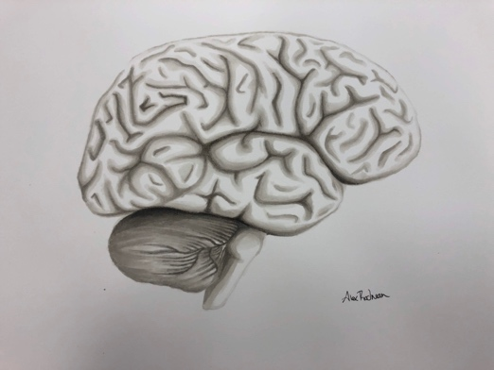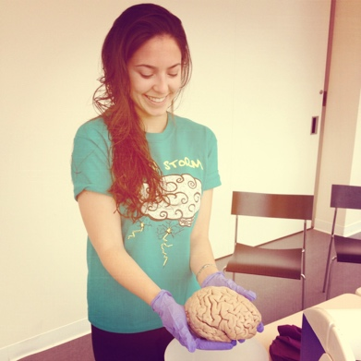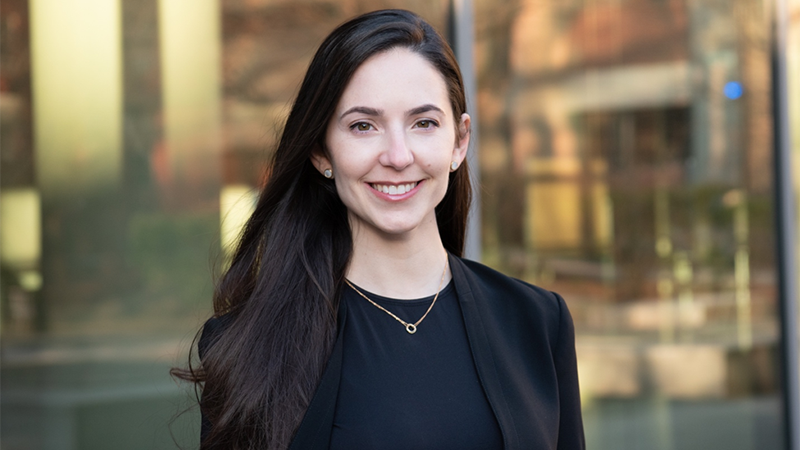I study how the developing brain and social experiences interact in ways that increase risk for mental health problems during adolescence, a period of heightened vulnerability. Specifically, I examine how adolescents typically process social experiences, how differences in social processing can increase risk for mental health issues, and how we can leverage social factors to promote resilience in the face of social stress.
photo by Celia Muto

A brain I drew as a parting gift for my graduate school mentor Leah Somerville.
What career did you aspire to as a child and why?
Growing up, Lisa Frank was a BIG BIG deal and I LOVED the drawings of whales and dolphins. I was lucky enough to see some dolphins in the wild while visiting family in Venezuela and was simply awestruck. As I learned more watching the Discovery channel, I became fascinated by how smart and social they were. I was also a total shark week kid. So, like every other kid growing up at the time, I wanted to be a marine biologist. I think that path came to a screeching halt when I found out I’d have to learn about every other sea creature along the way and sea cucumbers just didn’t do it for me. Today, I’m still very much interested in the scientific study of brains and social things, just in adolescent form!

Holding a brain during a workshop the lab put on for local high schoolers.
What has been one of the most exciting or surprising moments in your career so far?
One of the most important learning experiences during graduate school had to do with my first set of findings. I wrote a grant proclaiming some strong hypotheses, made some hypothetical figures of expected results, and outlined the clear clinical implications it would have. It was all tied up in a nice bow. And, as is often the case, the data had other ideas; my hypotheses were not supported. I felt devastated! However, this experience helped me challenge my assumptions and spurred a new line of questioning that set the stage for my entire program of work. This was my first lesson in learning how to separate myself from my data/results (failed hypotheses ≠ failure), and the importance of allowing the data to speak for itself. Pro tip: collect some best friends in graduate school that give you this kind of perspective and celebrate you through the ups and downs.
What are some of your interests outside the lab or office?
My interests outside of work historically included drawing, singing, and doing anything near the water. Today, my activities look a little different since my daughter, Layla, arrived in May. Now, I have nightly song and dance sessions with Layla, who joins in by sing-yelling and dance-kicking between spins. She has also shown some interest in the guitar, which my brother comes over to play for her. She LOVES going outside and saying hi to (yelling at) passing people and dogs. She is the most playful and snuggly little thing and my best hobby to date!

